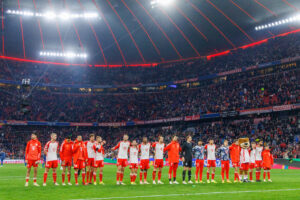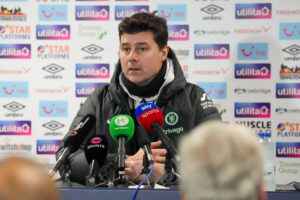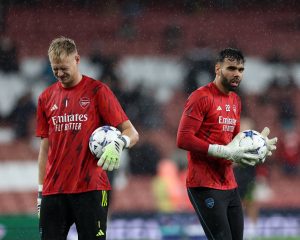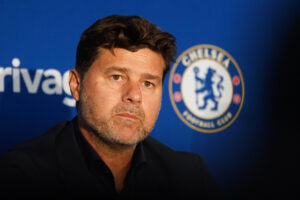Much has been made in the media over Tottenham Hotspur‘s supposed “Wembley curse”. Spurs have only recorded three wins in their last ten outings at the historic ground, and an erratic start to the campaign has only seen the team win only once in all competitions at Wembley at the time of writing.
With the club set to spend at least one season there while their new stadium is built, the pattern of poor results at Wembley needs to stop very soon. Whether there is some kind of ‘curse’ hanging over Spurs, however, is another matter entirely.
The Real Causes of Poor Results
Tactics
Tottenham have so far approached Wembley in the exact same manner in which they played at White Hart Lane. The majority of opposition defences have deployed a deep block at the back which has only allowed them to score twice in three league matches. Compare this to last season, when Mauricio Pochettino’s side had the best offensive and defensive records in the league.
Last year’s excellent league campaign was largely down to the performances at White Hart Lane, where Spurs picked up 53 out of a possible 57 points. At Wembley, meanwhile, they have been far too cautious in their approach.
More beauty, less beast
One of the main characteristics of Pochettino’s Tottenham has been the high pressing game, but it is much harder to maintain this style of play at Wembley, which has been shown by how much less effective the home side have been in executing it. Whenever they win the ball high up the pitch it creates an abundance of chances, but without this option being available all the time, Spurs look short of creativity.
Pochettino still insists on playing two defensive-minded midfielders, usually some variation of Eric Dier, Mousa Dembélé and Moussa Sissoko. All of these players are more renowned for their power and strength than their technical ability, and this is having an effect on the team’s ability to create chances.
One player who does possess this ability is English midfielder Harry Winks. Over the summer, Pochettino compared the youngster to Andrès Iniesta, and his ability to take on players in the middle of the park and thread through balls has been sorely missed. Winks has rarely featured so far this season, easing back into the side following his injury lay-off. He will need to feature on a more regular basis soon.
Team selection
Pochettino has been accused of disrespecting opponents, and Sunday’s draw with Swansea proved to be the latest example. Serge Aurier, Ben Davies and Dembélé were all left out of the starting XI, and it seems that the manager was looking to rotate the team slightly under the impression that his side would still be able to break the opposition down. He was mistaken.
Kieran Trippier has started every league game at Wembley so far this season, predominantly at right wing-back. He is a very good right-back, but he is not suited to the wing-back role. The days of Kyle Walker bombing down the wing are a distant memory and as he prefers to not risk taking on opposition full-backs, Trippier usually passes back or forces one of the midfielders out of position to help him out. When this happens, potentially three players are doing a job which Aurier can do on his own.
The one game Aurier has started at Wembley, Spurs won against Borussia Dortmund. When the Ivorian came on against Swansea he changed the game and provided the outlet Trippier could not. In the dying minutes, he even had a big penalty shout turned down by Mike Dean.
Silence the doubters and end the Wembley curse
The media latching onto the “Wembley curse” myth is no surprise, but the poor results have been caused by other factors and it is time for the players and manager to string enough results together end the discussion about it altogether. If Pochettino implements a more attacking and brave approach to games and takes every league game seriously, then the ‘curse’ will be a distant memory.
Main Photo
Embed from Getty Images






